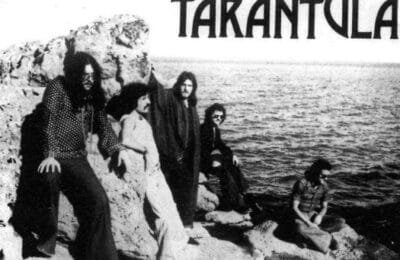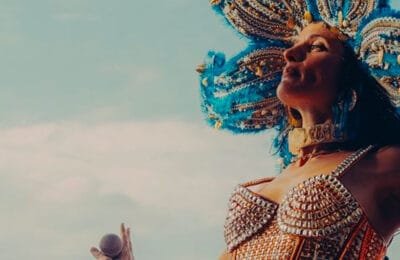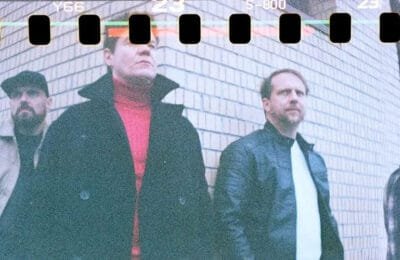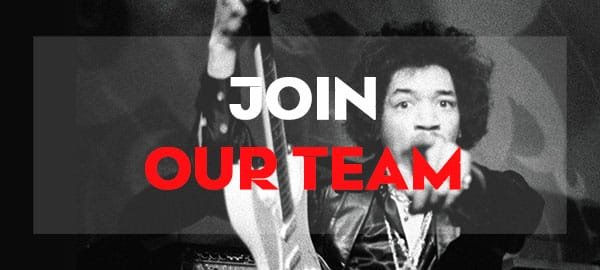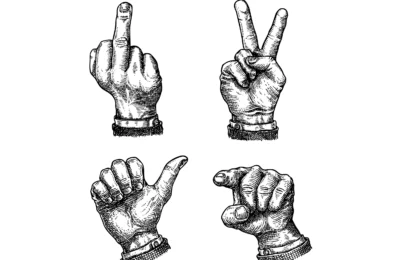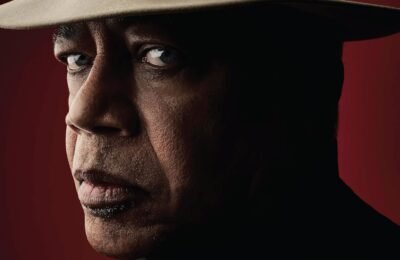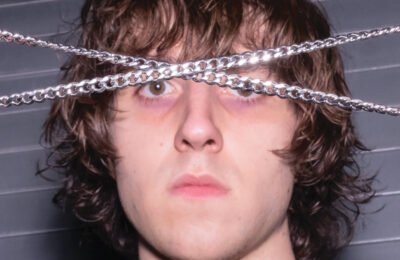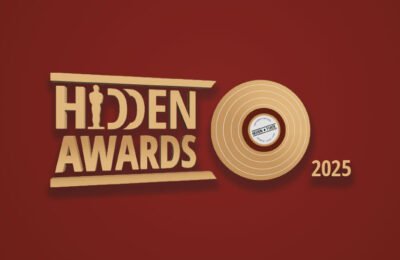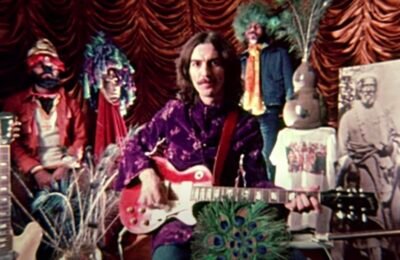Republic of Loose are a real favourite of mine. Apart from providing the soundtrack to some of the best years we had in this country, they introduced the Irish public to some of the finest genre-bending music ever produced here. Last month, it was my absolute pleasure to sit down with Cormac “Brez” Breslin to talk all things Republic of Loose.
Loose Beginnings
Hey Brez, thanks for taking the time for an interview! I’ve been a fan of Republic of Loose for quite a while. So I’m interested to know how the band came to be. I remember reading a Battle of the Bands victory being the real start of things. Can you tell me a bit about that?
Yeah so that was pre-me. Prior to Republic of Loose, the band was called Johnny Pyro and the Rock Coma. I knew Mick and Dave, and I also knew Mark who was playing bass with the band at the time. I knew them from Churchtown in Rathfarnham. We had mutual friends and I played blues with Dave for years. We’re talking from the age of fourteen or fifteen. Mick and Dave, the Pyro brothers, set up Johnny Pyro and the Rock Coma.
I was aware that they were doing stuff and before long a demo landed in my hands. It was either a CD or a tape. There were five songs on it and it was really good stuff. It was bluesy, a bit dirty in this Tom Waits style and they were mixing it with this hip-hop style. Exactly the mix of music I was into at the time and I really liked what they were doing with it. It wasn’t polished and they weren’t tying to be East Coast or West Coast. It was just their mixed take on it. The production was rough but I thought it was quite a fresh sound.
So it was that band who won a Battle of the Bands. I believe they won a sum of money or some recording time which allowed them to go in and record that demo. So that was the lineage and I was aware of the band. But I was just admiring them from afar. It wasn’t until maybe three or four years later that I got a call from Dave. But that’s another story.
I imagine that story leads on to when you joined the band. Can you tell me about the first sessions you had with the band and the recording sessions around This Is the Tomb of the Juice?
So the recording they made off the Battle of the Bands win contained four songs. These were separate from the demos I had heard. They were sitting on them trying to get them mixed and finished. They were working with a producer at the time called Paul Thomas. He had worked with U2 and he had some really big successes in the early to mid nineties. So they had a good guy watching over them and I was asked to come in and add to those tracks. So I ended up on those tracks and some of those tracks ended up on the first album. They were some of the slower songs on the album, like “Something in the Water“, “Dial Jesus for Sweetness“, “Lawn Child” and “Black Bread“.
There wasn’t a huge amount more going on in terms of tracks. A while later, I got a call off Dave who said Mark’s leaving. The bass player and the other guitar player had left on the same day. So he asked me would I be up for doing it. And I said “absolutely”. I wasn’t really doing anything at that time. I had a couple of minor successes around Dublin with a local band that didn’t work out and I had kind of given up on the little dream of maybe being a musician. And I was back in college and I had kind of moved on from it and I was not thinking about it anymore. And so, I joined and we also got a bass player who ended up being Benjamin Loose.
We got into a regular, weekly rehearsal. It would either be on a Sunday or Monday or Tuesday. We used to rehearse in kitchens until we went into a place that was over a takeaway in Kimmage. It just grew from there. The lads used to hang out in Eamonn Doran’s in Temple Bar and had a regular gig there. So I joined them, and we had this new lineup and were pretty ambitious. But I think when Podge and I joined, the chemistry changed a bit and the ambition went up a couple of levels. I would bring in ideas because I always wrote and then the sound palate kind of changed. Because I was bringing in stuff, Dave was bringing in stuff. And Mick felt he needed to bring in stuff too. So there were more songs and we had to decide which ones stood out.
We all got along really well and there was no selfishness with songs. We just chose which ones were best. That weekly rehearsal, peppered in with these regular gigs that kept growing in size, really helped us gel. Mick really honed his performance and the gigs were nuts, it was kind of cultish. We couldn’t believe what was going on. It could be a room of twenty people but they’d be losing their minds at the end of the gig.
There was a great scene in Dublin at the time. Loads of stuff going on. We started playing bigger venues to more people. We got a sense that we had something going on, and we were quietly confident. But also quietly shitting our pants. It was a learning curve where we liked what we were doing but we were also faking it a bit too.
That all led to the culmination of the first album and there came a crunch point where it was not moving. I rang Mick and Dave on the landline and told them we need to get it going. I told them I had about three or four months in me and if nothing happened, we needed to draw a line in the sand. They agreed that we needed to get the album made and that sort of manifested itself into a record deal which helped us make the album. So in short, that’s how it went.

Aaagh!
The real breakthrough for the band was the second album, Aaagh!. Can you tell me about the recording of that album? I understand there was quite a large budget with it.
Yeah the sonic quality and detail completely changed. We wanted to do something different from that swampy blues and low tempo thing. We did these gigs and it slowly started circulating outside Dublin into Mullingar and then down to Limerick and Kilkenny, Waterford, Cork and Galway. As we were gigging, the crowds starting coming in and we were making some money. We would take a bit for ourselves and siphon off a bit for recording — we were very clever young men (laughs).
We had this record deal with an English company, we were back and forth to England but were making no headway at all. The English press did not like us, and neither did English radio. We were lambasted by NME when they came to see us in the Empire. I can’t remember who we were supporting in Belfast at the time, but they said we looked like extras from The Sopranos. At the time, I guess NME and English pop culture was black skinny jeans, leather boots, the fringe and guyliner. A certain thing was happening and we didn’t look like those bands at all. So that was it, we were struck off the record.
We got burned by that first record deal because the guy who owned the label went quiet on us. He did invest money in it, and I think we sold six or seven thousand copies here and in England. It didn’t do too bad as an independent debut, but the phone went silent and so did the royalty payments. We weren’t put out by that but we knew we needed to do something.
We were still keeping up the weekly regiment and the writing kept happening. The songs just came into the room. I stumbled across a couple of songs at home that I wrote and they just fell out. They were nothing like the live set, that kind of bluesy, rocky thing that never picked up the pace. We had noticed that the live performance was petering off towards the final third of the gig. It just needed a shot in the arm. So with that in mind, I came up with a couple of tracks, the first one being “Comeback Girl“.
I was just sitting on the couch one day. I was hungover and I was watching Prince live on MTV. He was playing acoustic guitar and I loved the way he was playing it. I was trying to mimic it a little bit and thought his technique was so nice. So I just had the acoustic on, that riff kind of popped out and I just played it for a while, went upstairs and got a cassette recorder out, hit record and put the riff down. Then I wrote the bassline, and a second part which became the chorus.
This was enough to bring into the room, which was a soundcheck at Whelan’s one time. We were playing it mid-soundcheck. Mick came in and asked “What the fuck is that?”. Podge told him it was a riff I wrote and he loved it. We went to rehearsals the following week and he wrote the top line, his vocal part, in one go. We went straight in and recorded it because we had a few quid put aside and we decided we would distribute it to the radio ourselves. And so that’s what we did.
The song immediately kicked off. I think it was Larry Gogan —he used to be on Today FM— who championed it and played it constantly. Our manager Dermot Doran met him on the streets of New York. He got him in a headlock and told him to play this CD. And he did! He played it off the charts and then it slowly took on other stations.
We set up our own label and we took the radio royalties for the label and the publishing royalties for ourselves. Off the back of that, we got bigger gigs and the fees went up and that’s how we accumulated the budget for Aaagh!
When “Comeback Girl” started going off the boil on the radio, we had “You Know It“, which was another track I wrote instrumentally when I was living down in Ranelagh. We went in and recorded it and we serviced it straight to radio, the same thing again. And I think that was the second highest song played on Irish radio in 2005. I think it was U2 who were number one.
Off the back of those two singles and the money we made with the live gigs, we put aside a stack and that’s how we got the budget together. The budget was seventy thousand euro, which was huge for an independent album at the time. We didn’t pay it off in one lump, it was kind of fits and starts, but we were having nervous breakdowns because it was a ridiculous amount of money. Even a major label wouldn’t have given us that much, I think the going rate was twenty five to thirty thousand depending on the producer you were working with.
So it was quite a grandiose outlay, but I think it comes across in the detail of the recording. We did spend a lot of time and we worked with Gareth Mannix who did a great job so I’m glad we spent the time and money on it.
You mentioned Prince was the inspiration for “Comeback Girl”. Was that the kind of music you were listening to at that time?
I was always a huge Prince fan actually. I loved his guitar playing and I liked that it was kind of funky but also not funky, you know? His sound has a little bit of country in there and a little bit of rock, but there’s also funk and soul and classic pop. So yeah he was hitting all the markers of what we were really into.
I was a massive fan of Hall & Oates as well. Not in the kind of cheesy yacht rock way, but it was a genuine appreciation of the craftsmanship of the songwriting. I think they came from a Motown background and that’s what they were into. But I was also into Motown; the classic song structure of two minutes, thirty seconds. No fat, all lean.
That’s where I was coming from, and then the classics. I was a massive Paul McCartney and Beatles fan as well. I studied the structure of their songs. Lots of different things but I also like Black Sabbath and heavier stuff as well. Frank Zappa and maybe some more sort of progressive stuff from the seventies which is all back hip again, but at the time it was totally uncool music. Like Jaco Pastorious, Stanley Clarke and Weather Report and all those. They’re all very hip again now, but at the time you’d be laughed out of a record shop going home with a bundle of vinyls. I liked all of that stuff, I liked a bit of everything really but particularly the classic songwriting stuff, really into that.
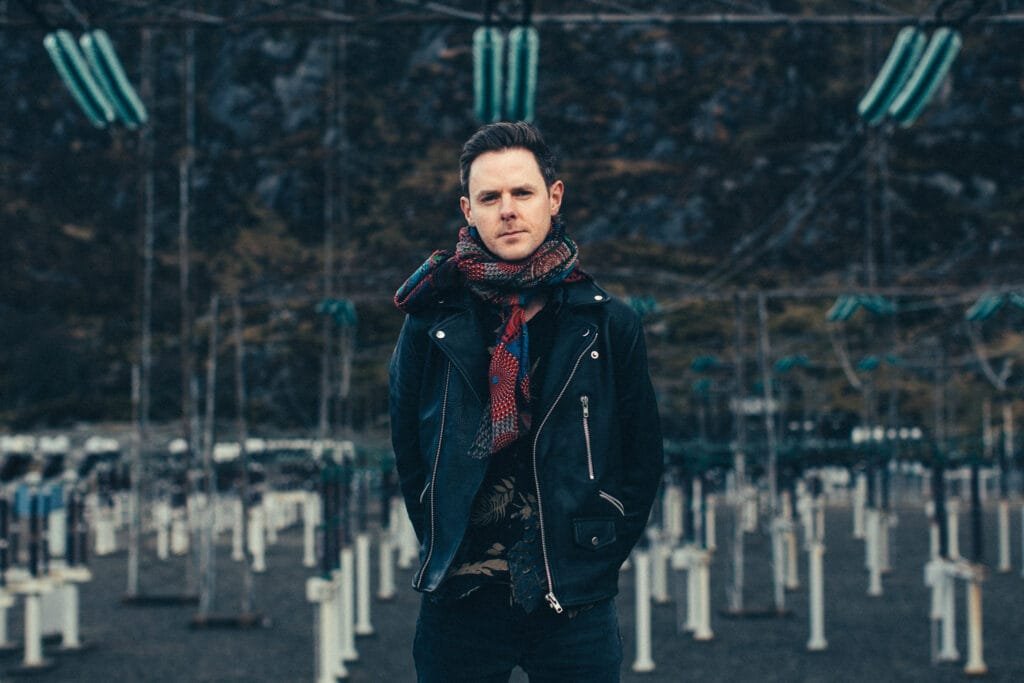
Loose Live
What was your favourite gig you remember playing?
There was so much and they were heavy times, I guess the memories fade now, it was like twenty years ago. I definitely go back to that earlier first run we did where it was like every gig was a little further. I remember the first one was Johnstown in Kildare, it’s literally over the Dublin border. We got a van and we were going down thinking we were in the sticks. Our gig was in Johnstown Inn and it was insane. There was a good crowd in and it was bonkers, people were losing their minds. Similarly enough, we’d go to Mullingar thinking we’re really in the countryside. We used to do regular gigs in The Stables and it was literally like a stable. Those gigs were insane, just topless lunacy and craziness. Then we just went beyond and beyond and beyond.
Dolan’s was the Limerick gig and they were wild. They were great gigs and we used to get the room full quite regularly. And then Róisín Dubh gigs were amazing, and going down to Cork too. Of course, this was pre-M50, M1 and M7. Cork was four hours and forty five minutes with a few stops. A few cigarette breaks, a few piddles and whatnot. So it wasn’t easy to get down there, by the time you got there you would be wrecked. But we would stay down for a couple of nights but they were great days as well in The Old Oak.
So were those your favourite memories of the era?
All of those early gigs I have an affection for because we were getting on well, we were having the giggles and we were very giddy. Before we were getting a bit tired of the continuous loop which lasted our entire career and I was getting a bit jaded with it. I understood that was the model we had set up and that was the thing that paid us. It paid our living expenses and rent and whatnot and also funded the label. So I understood that we were kind of stuck in a cycle and I felt a bit on the hamster wheel. That ended up hurting us more than other bands.
Other Irish bands like Bell X1 and The Coronas who were very much on the up at the time were doing the same but in a much cleverer way. They would build up to a big performance, do one big gig in say, Limerick, and then they wouldn’t do the eight smaller venues that we would do. They might do four or five big ones in Ireland and then take that money and go to Germany or England.
We were doing England as well, it just wasn’t taking. We just couldn’t build a crowd there. And then we were going to America to try crack America. By the time we got there, we had a couple of labels interested and the gigs over there were great, but I think things started to crack a little bit. I was getting a bit fed up myself and the relationships started going. There’s no HR department in a band, so you have to model that yourself. When you’re young and silly you’re probably a bit naive, that’s when those cracks become wider. That’s just the way it went for me.

Comeback, Girl?
The burning question on my lips is, any chance of a reunion?
We sat down at the end of 2023, I think it was early November, and we had a chat. All of us. Because there were offers coming in, I don’t know what they were, it was just something. These things bubble up every couple of years and it bubbled up that year in particular and a couple of years before that. We had a great chat and we were all hugging and all that good vibes. And I don’t know what it was, it just didn’t feel one hundred percent like it was ready to go. I think there were a couple of bruised egos over it not being a consensus on a yes, but it’s grand. Everyone’s okay now, we’re all buddies and all that.
I think we all had a bit of PTSD coming out of Loose and I think there might be some residual stuff going on, but I’d still be up for doing it. I know most of us would, it’s just about timing really. Let’s see what happens over the next eight to ten months, I don’t know. I haven’t talked to anyone in the last while. Saw Dave at the weekend for a few beers, but I don’t know. I’m not saying this is happening or it’s in conversation but it wouldn’t surprise me if it happens, we just don’t know when. We’ll see what happens.
What are you up to now? Any more plans for solo releases following The Nightfall?
I was going hell for leather up to the pandemic and it was going quite well. I had built up a bit of a reputation at least for putting on some good live gigs. [The Nightfall] is nice, it’s alright. It’s a little naive but I’ve been pretty critical of it at this stage. But it has some nice moments. I had written the second album, which I think is way better in terms of the quality of songwriting. I’m not a massive lyrics guy, it’s not my strongest point. But I felt I got a bit of a breakthrough with the lyrics and the songs were quite good. There’s a full album sitting there, but when the pandemic kicked in, it obviously stopped it. It gave me a little time to reflect and I realised I needed to take a breather.
I haven’t gone back to that second album I’ve written. It’s sitting there and I’ve played a couple of little gigs, but I’m not really ready. I’ve subscribed to this new art movement called “The Art of Doing Nothing”. It’s not necessarily doing nothing, I’m always doing something. But that idea of pushing, pushing, pushing for minimal perceived gain? I’m more subscribed to letting things come to me and that’s working out quite well in a really weird way. I kind of gave up a little bit and as a result, it’s given me a new lease of life with the writing and collaboration stuff I’m doing.
I’m writing with Mick again, I don’t know what the purpose of it is. It’s probably more for Mick’s end of things. I’m also writing with Mick for other people, but that’s going really well. We haven’t wrote together in sixteen or seventeen years, and it’s like riding a bike as he says. So that’s cool and it’s remote, so space is there and it’s easy and we’re getting on really well.
I’m also doing another band with a great singer in Dublin called Josh Dunford. That band is called Honey Muzzle. I’m enjoying that and it’s kind of bluesier in the rock sense but it’s hard now. Things have changed. It’s harder to get gigs, definitely harder to make money, but I’m enjoying it. I’m back in the “enjoying it again” phase.
Whether we will see a Republic of Loose comeback in the next little while, I am definitely excited to see what the future holds. The re-release of their first album on vinyl brings hope, but at the very least puts Loose back into rotation. Whatever happens, I will be following Brez and the lads.



